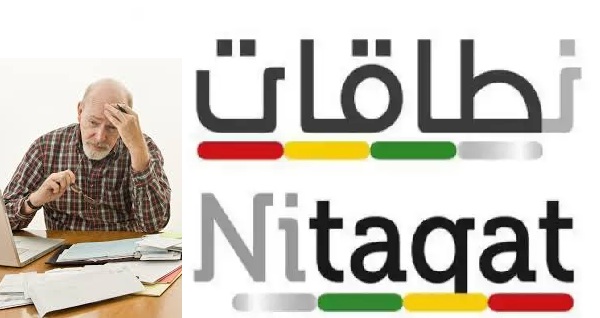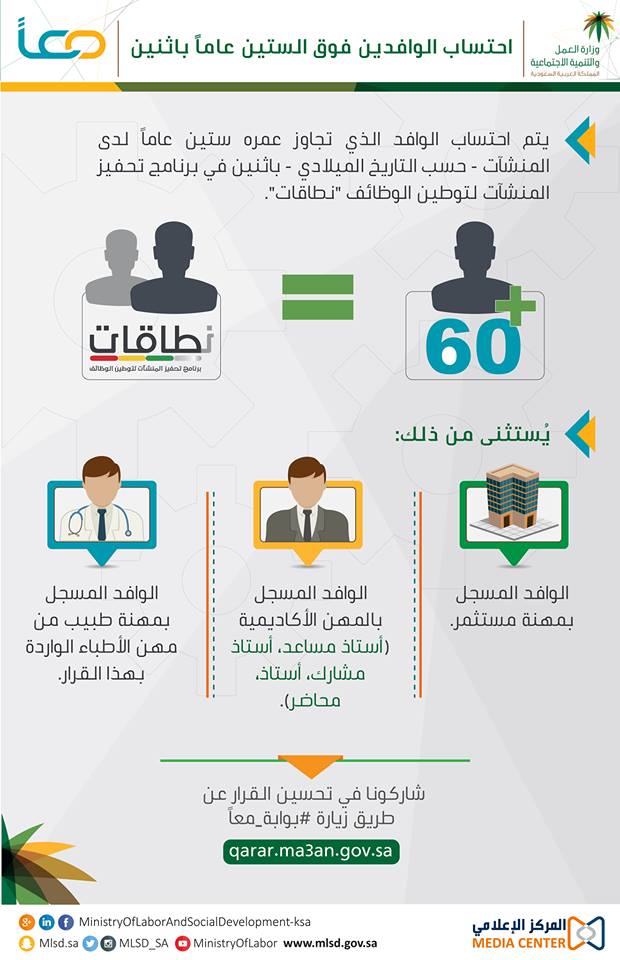Expatriates working in Saudi Arabia if have age 60 or above than he will be considered equal two expat employees in according to Nitaqat Saudization program, Al-Madina Arabic newspaper reported on Saturday.
So this means if any employer hire 60 year of age or above employee than this will be equal to two expats working under Employer which is not beneficial for Employer as according to Nitaqat Program you must have to employ more Saudi Employees, less Saudi Employees means lower status of company in Nitaqat Category.

What is Nitaqat System in Saudi Arabia?
However, expats registered as investors or academicians (professors, associate professors, assistant professors, lecturers) or working in medical profession as doctors will not be considered as two staff even though they are above 60 years of age.
Check What is Nitaqat Category of Your Employer
However those expatriates having profession as investors or academicians(Lecturers, assistant professors, associate professor, professors) medical profession including doctors were not considered as two expat staff even their age is 60 or above.

Source: MOL OFFICIAL
But pharmacists and medical technicians will be considered as two expats employee if their age is 60 or above.
The Ministry of Labor and Social Development initiated this strategy called saudization to make job market dominate of Saudi Employees over a next 25 years, saudization is started in 2010. This strategy become really effective and number of Saudi Employees increased to 647,000.
This Plan also initiated to make the private sector more attractive for Saudi Job Seekers, which gives positive results as Saudis in the private sector exceeded 1.7 million by 2015. Some more things like Tawaqouf, Nitaqat Plus, Wage Protection system were included to protect the rights of Employees. In wage protection system all Saudi employees salary is must be more than 1500 Saudi Riyal.
The year 2015 is marked as better year for Saudi Women employement as number of SAudi Women empoyees increased to 21% as compared to 2014. Womens employees increases in agriculture and fishing, mining, electricity, water and gas, Construction, training, social services, downstream industry, insurance, real estate and business
Leave a Reply